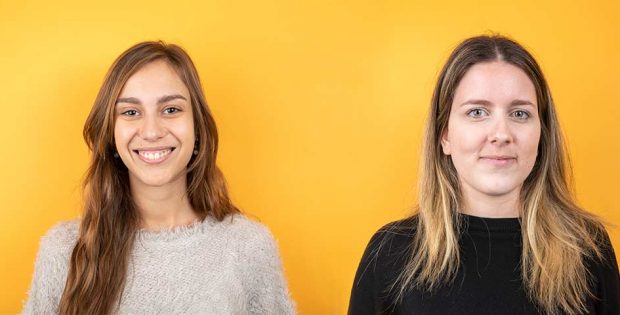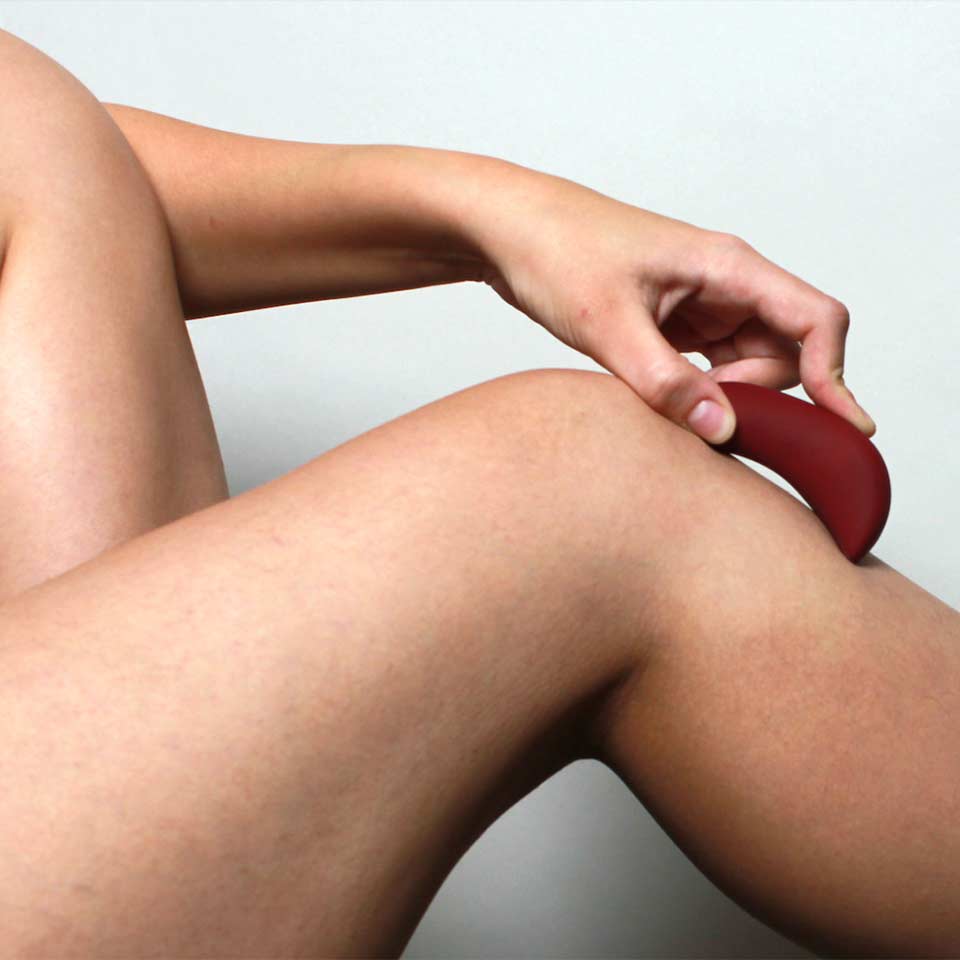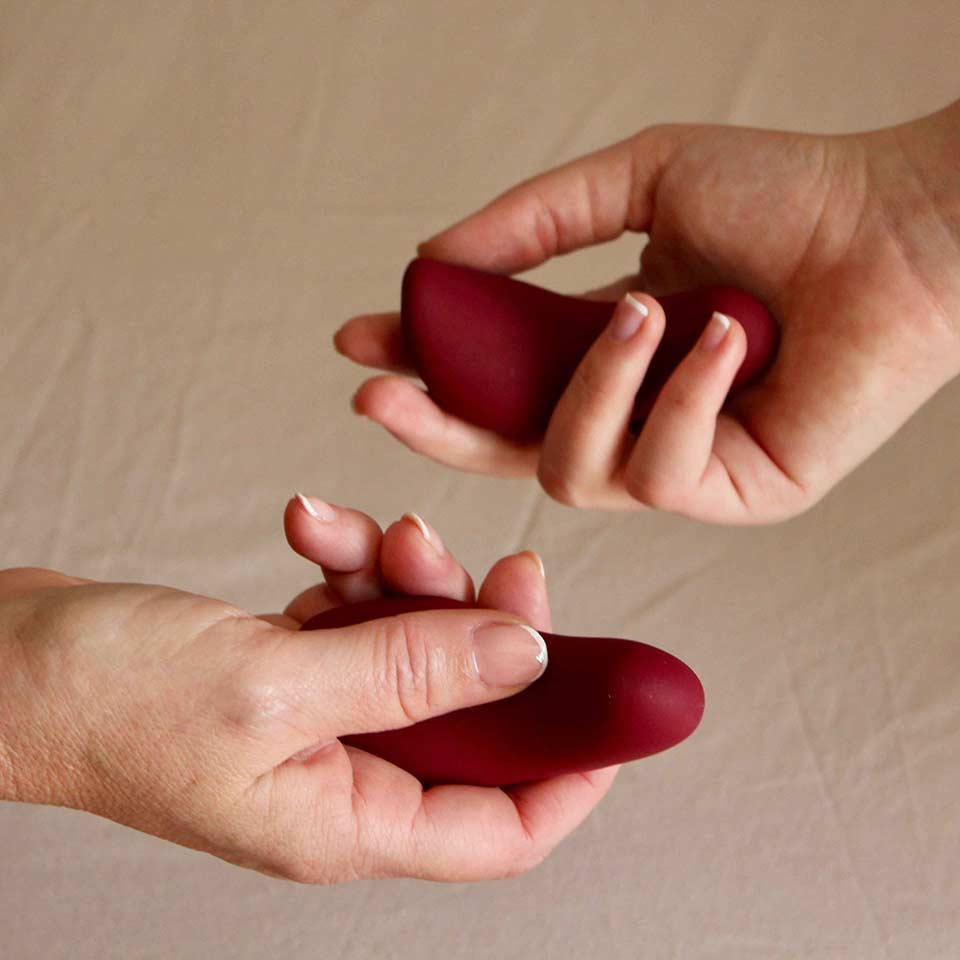
“We are motivated by the potential of tech to increase sexual wellbeing.”
Sharing experiences is easier than ever thanks to social media and the internet, and to many people, posting snippets of their lives has become perfectly normal. One aspect of life that has been exempt from this trend, however, is sexuality. This is where start-up Vibio comes in. The company, launched by Alma Ramirez Acosta and Patricia Cervantes Santana, has developed a sex toy that makes intimate experiences shareable thanks to an app. The vibrator is called Ella, and there is a crowdfunding campaign for it coming up in February. EAN had the opportunity to talk with the two founders of Vibio about their new product.
Ella is the name of the sex toy for which you will start a crowdfunding campaign in February. What will be the most important feature that will make Ella stand out?
Patricia Cervantes Santana: Ella is an app-enabled wearable vibrator for external stimulation. It’s anatomically designed to fit vulvas, so it is comfortable to wear even outside the bedroom.
Our main focus is to encourage exploration and put the emphasis on an experience which is totally sharable. Our toys can be controlled to offer a gamified element, with pleasure targets and bigger challenges available to try out in order to make sex a much greater priority in people’s lives.
Ella is being developed by Vibio. Could you tell us a bit more about the company and the people behind it?
Alma Ramirez Acosta: We founded Vibio in 2018 after having been friends since the age of three. We are originally from Gran Canaria and later moved to Barcelona to complete our university studies.
We love tech and its potential to increase sexual wellbeing, a taboo subject that affects everyone’s lives but is rarely spoken about. Our mission is to help society overcome this awkwardness – presenting sex in a natural way that encourages people to feel comfortable with themselves.
We are both looking forward to our Kickstarter campaign launching on 4th of February, taking pre-sale orders of our first product: a wearable vibrator we’ve named Ella.
Being a first-time entrepreneur at the age of 24 is not easy and operating in such a stigmatised industry makes it a bigger challenge. However, we wake up every morning feeling sure that we’re working towards an important, neglected problem that has long been waiting for a fresh take.

Did you have any previous experiences in sex toy development? Why did you decide to start Vibio in 2018?
Patricia: Alma always had high hopes of building a business, so she moved to London just over two years ago out of admiration for its start-up scene.
After gaining business development experience whilst working for tech start-ups, Alma’s interest in sex tech was triggered by an article she read about a sex doll brothel in Bogotá to combat prostitution. After researching the sex tech market and seeing massive opportunities on a global scale, she decided to pivot to vibrators due to first-hand experience.
I joined soon after, realising the potential of new tech to increase and normalise sexual wellbeing, and the impact that can have in social attitudes towards female pleasure. After leaving my corporate tech consulting job in Barcelona, I moved to London to co-found Vibio.
How would you describe the philosophy behind your company?
Patricia: We believe in tech for good (fun). We are motivated by the potential of tech to increase sexual wellbeing, so we’re all about making people feel more comfortable and open about their sexuality.
We focus a lot in innovation, so all of our products are designed to offer a different or improved experience to those already in the market. Sustainability is important for us, so one of our missions is working towards making our products as eco-friendly as possible.
You state on your website that you “believe there is no reason intimate pleasure can’t also be a social experience.” Could you elaborate on that?
Alma: We all enjoy solo sex, but there is still a stigma attached to it – especially in the case of women. Self-pleasure is nothing to be ashamed of, and we should all be able to discuss it openly with our partners or even our close friends. Research has found that couples who communicate their sexual needs and desires in a natural way report higher satisfaction, which is why we regret that most people still regard self-pleasure as a taboo topic. Our approach is creatively designed toys as a way to break down that barrier and open up healthy conversations about sex.
Let’s talk about Ella. Could you tell us a bit more about the development process?
Alma: When we started this journey, we knew we wanted to make designs that were unique, attractive, and functional. We had fallen in love with the concept of wearable vibrators but saw there was room for improvement in terms of design and execution.
Looking at other wearables in the market and based on our own user experience, we started sketching out ideas which we then 3D-printed to see how they performed. This was key to keeping our costs low, and after many iterations, we narrowed it down to a version that would fit comfortably and would distribute vibrations effectively.
Why did you choose the exterior design we can see today?
Patricia: We designed it with the anatomy of the vulva in mind to make sure it was comfortable to wear. Looking at average sizes and after extensive user testing, we narrowed it down to a version that would fit comfortably and that would distribute vibrations efficiently.

Ella will heavily rely on the app that comes with the physical product. What will this app be able to do? Why did you choose to use an app anyway?
Alma: Having an app allows for easy remote control and partner play, which is essential in a wearable. Besides making it easy for couples to play regardless of location, it can be a great tool to challenge each other to try new things and explore intimacy in a different way.
Plus, it opens up lots of possibilities to grow as a company. We’re moving towards interconnectedness, and apps are a key driver. We have lots of ideas, but we want to grow a user base first to learn what people would like to see from us and have them be a part of that process.
Did you have a specific target group in mind when developing Ella?
Alma: Ella is designed for all types of vulvas and has been tested with people of all ages and sizes. We see most interest from people who are curious about the potential of the app, which is something you see in many different generations nowadays.
What will be the next steps after your crowdfunding campaign? When can the backers expect the finished product? When will it be available to retailers?
Patricia: After our Kickstarter campaign ends in March, we will start production and development of our app. We expect to ship the finished Ella in October this year.
Since Ella is a sex tech product: How exactly would you define sex tech and what do you expect for the future of this category?
Patricia: Sextech is any technology applied to enhancing sexuality. Robotics and VR porn probably are the most commonly known examples, but it goes way beyond that. Sextech is a booming industry with many angles, facilitating the new diverse intimacies our culture is looking for. We are seeing great projects – many led by women – opening up very necessary conversations around health, education, assault reporting and intimacy and exploring how new tech may help to solve some issues in these categories.





